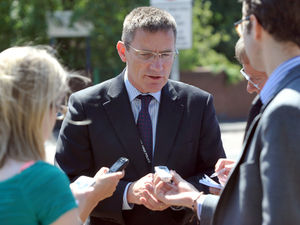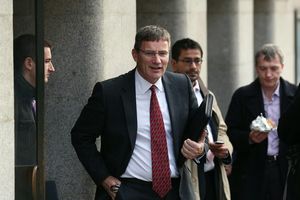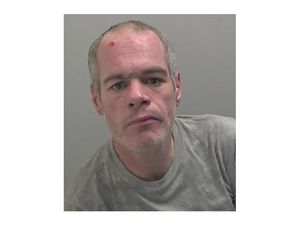Police chief: We can’t cope with crime levels
West Midlands Police is struggling to cope with an unprecedented level of demand for its over-stretched services, the force's assistant chief constable has said.

Marcus Beale said WMP faced an unprecedented backlog of 2,000 calls last week, forcing officers and staff from back room roles to be redeployed on the frontline and in key support posts.
It comes as the force's latest performance revealed that crime had risen by eight per cent, which senior officers and union bosses have attributed to successive cuts to police budgets.
Mr Beale said: “Demand is never consistent and there will always be peaks and troughs.
"But there is no doubt that in recent weeks and months we have witnessed unprecedented demand for policing services across the West Midlands.
“We responded to the terror attacks in London and Manchester by ramping up our armed and unarmed police presence in key locations across the region, including shopping centres, transport hubs, entertainment venues and places of worship.
"This was absolutely the right thing to do to reassure our communities and protect the public.
"We also sent officers to help our colleagues in London and Manchester in the aftermath of the attacks.
“In addition, the force saw a huge spike in calls from the public during the heat-wave last month: on both Saturday and Sunday (June 17 and 18) we took more calls than we did on New Year’s Eve which is normally the busiest day of the year.
“Understandably, this combination of factors has impacted on our ability to attend all calls for service, especially non-urgent matters, as swiftly as we would otherwise have been able to.
"We are prioritising calls so that the most serious incidents and vulnerable people are still receiving a swift police response – and in many cases we are getting officers to the scene within just a few minutes of an emergency call being made."

Mr Beale added there were currently 98 call logs 'classified as having required an immediate response' still open.
“Our teams are working flat-out to tackle this backlog and we have already made some headway," he said.
"Officers and staff normally in back-office positions have been deployed on the front line or in support roles to help out and some discretionary training has been postponed in order to boost resilience across police departments and our call centres."
One initiative to tackle the backlog saw WMP neighbourhood policing units and response teams join forces for an ‘All Out Day’ last week to target individuals and hotspots that had placed repeated demands on the force.
More are planned in the coming days.
When a member of the public calls WMP the report should be immediately assessed for seriousness and placed into one of eight categories by operators.
The force uses a graded response to the calls, with officers attending the most urgent as soon as possible.
Mr Beale added: “At times like this it’s really important members of the public understand the pressures our staff and officers are under and don’t call 999 or 101 with trivial matters or questions that could be answered with a quick internet search.
"We need to prioritise calls so we can quickly reach people in the most urgent need of police support or to scenes where crimes are in progress.
“It may be that people reporting non-emergency matters have to wait a little longer than normal to access our services and we thank them for their understanding.”
WMP has lost around 2,000 officers and a quarter of its budget over the last seven years, while across the country 19,000 police posts have gone over the same period.
West Midlands Police Federation secretary Steve Grange said the cuts had affected the force's ability to serve the public.
"It comes as no surprise to us that we are now struggling with demand," he said.
"Police officers don’t want to turn up and do a bad job, but there are vacancies on teams which mean we have not got the members we would ideally require to staff the expected demand.
“It means we are not going to deal with the routine let alone the unprecedented demand.”
Last week Detective Inspector Warren Hines said an increasing number of police officers were contemplating suicide as a result of financial pressures put on the force.
He said officers have been stood down and taken to hospital after 'having a meltdown', while in some cases sergeants allocate work on the basis of 'who is the least tearful'.
The National Police Chiefs Council (NPCC) has called on the Government to increase police funding




